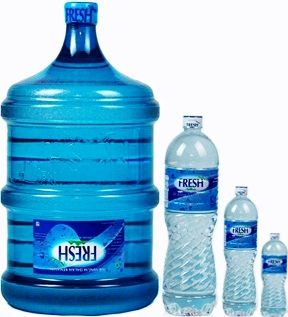Water filters have a long history as a method of water purification, beginning as early as 2000 b.c.e. in ancient Egypt. Filtration has evolved from the simple Hippocratic sleeve of ancient Greece, made from cloth, to the complicated solid block carbon and multimedia water filters currently on the market. Water filtration is now the premier method of water purification, removing more water contaminants, more efficiently, than any other technique.
The Process:
The filtration process involves some type of filter media, over which water flows. This filter media blocks passage of contaminants through physical obstruction, chemical adsorption, or a combination of both processes. Material construction of the filter media varies widely, but the most effective medias are made from carbon or a combination of carbon with other elements. Modern filtration technology allows water filters to remove more and more contaminants through the chemical process of adsorption. In the adsorption process, contaminants are encouraged to break their bond with water molecules and chemically adhere to the filter media. Generally, water goes through several stages of filtration to ensure that each filter media will remove the ultimate number of contaminants. Water normally passes through a water filter at a relatively low speed, in order to ensure adequate contact time with the filter media. Once the water has passed through the required stages of filtration, it emerges as pure drinking water, free from contamination.
Pros and Cons:
Unlike reverse osmosis and distillation process, water filters are not limited in the type or size of contaminants they can remove. Thus, water filters are able to remove far more contaminants than any other purification method. Also, because they use the chemical adsorption process, water filters can selectively retain healthy trace minerals in drinking water.
Filtration is the only one of the three water purification methods that is capable of removing chlorine, chlorine byproducts, and VOCs from drinking water. Chlorine and VOCs are the most dangerous and threatening contaminants of municipally treated drinking water. Besides the removal of these dangerous chemicals, water filters also extract from drinking water the chlorine-resistant protozoa giardia and cryptosporidium. These protozoa have plagued the water treatment industry for several decades and have caused a number of epidemics of severe gastrointestinal disease, contracted through drinking contaminated water.
Water filters, because they do not require the costly energy sources of reverse osmosis and distillation, provide a source of relatively inexpensive, purified water. Also, water filters waste very little water, as compared to reverse osmosis and distillation systems.
Depending upon the type of filter used, water filtration may be a less than ideal form of water purification. For example, granular filters do not utilize the chemical adsorption process, allowing several contaminants to pass through the filter media. Likewise, rapid water filters allot water inadequate contact time with the filter media, limiting the number of contaminants that may be removed. Solid block carbon filters solve both of these problems by using both adsorptive and slow filtration processes. Solid block carbon filters are absolutely the best and most effective water filters available.


.jpg)


.jpg)
.jpg)
.jpg)
.jpg)
.jpg)
.jpg)
.jpg)

